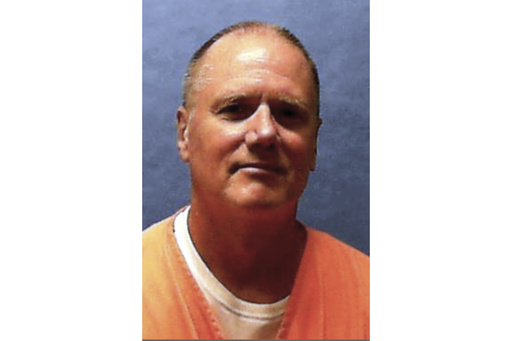In a historic development for the state of Florida, Edward Zakrzewski, a man condemned for the murder of his wife and two children in 1994, became the ninth person executed in the state this year. This execution set a new record for Florida since the reinstatement of the death penalty by the U.S. Supreme Court. Zakrzewski, 60, was declared dead at 6:12 p.m. following the administration of a three-drug cocktail at Florida State Prison located near Starke.
The previous high for executions in a single year in Florida was eight in 2014, a number that was equaled earlier this year in mid-July and has now been surpassed. Upon the unveiling of the death chamber curtain shortly after 6 p.m., Zakrzewski expressed his sentiments by thanking the people of Florida for their execution method, which he deemed cold, calculated, humane, and clean. Despite the severity of his punishment, he stated he had no complaints.
Zakrzewski lay on a gurney concealed by a white sheet and recited a poem as the execution process was observed by 14 witnesses, including media representatives and prison personnel. Once the drugs began to circulate through his system, Zakrzewski took deep breaths, overseen by three members of the Corrections Department dressed in dark suits. They attempted to elicit a response by shaking his shoulders and calling his name, but he remained unresponsive, eventually becoming motionless.
With this execution, Florida has surpassed other states in the number of executions conducted this year. Texas and South Carolina each follow with four executions. Upcoming executions are scheduled in Florida, including one on August 19 and another on August 28, based on death warrants authorized by Governor Ron DeSantis.
No relatives of the victims spoke with the press following Thursday’s execution. Throughout the United States, 27 individuals have been executed by judicial order this year, with nine more slated for execution across seven states by the end of 2025. The last execution in Florida occurred on July 15, involving Michael Bernard Bell.
Zakrzewski’s death sentence stemmed from the horrific events of June 9, 1994, when he murdered his wife Sylvia, aged 34, and their children Edward, 7, and Anna, 5, in their home in Okaloosa County, located in the Florida Panhandle. During the trial, it was revealed that Zakrzewski committed these acts following his wife’s decision to file for divorce, having previously expressed to others that he would rather kill his family than allow a separation.
Court evidence detailed that Sylvia was first attacked with a crowbar and then strangled with a rope. Their children were tragically killed with a machete, and Sylvia was further assaulted with the blade when Zakrzewski feared she might still be alive.
Over the years, Zakrzewski’s legal team filed multiple unsuccessful appeals, culminating in a final attempt to postpone the execution, which was denied by the Supreme Court the day before his death. Zakrzewski’s routine before the execution included waking up at 5:15 a.m. and enjoying a last meal consisting of fried pork chops, root beer, and ice cream. According to the Department of Corrections spokesman, Paul Walker, Zakrzewski received one visitor and remained cooperative in the hours leading to his execution.
The next individual scheduled for execution in Florida is Kayle Bates, who was found guilty of kidnapping and murdering a woman in 1982, with an execution slated for August 19. Another death warrant has been signed for Curtis Windom, convicted of murdering three people in the Orlando area in 1992, with his execution set for August 28.
Florida employs a lethal injection method comprising a three-drug combination: a sedative, a paralytic, and a heart-stopping drug. Leading up to Thursday’s execution, some opponents cited Zakrzewski’s service as an Air Force veteran and noted that the jury’s 7-5 vote recommending his execution barely constituted a majority. Under current state legislation, such a split jury decision would not have warranted the death penalty.


